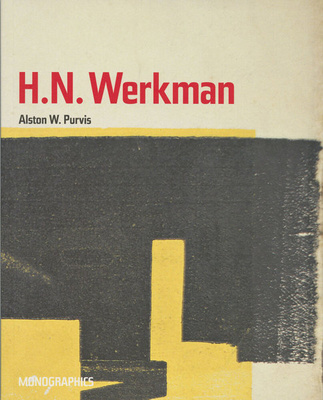H.N. Werkman
- Dutch designer and printmaker Hendrik Werkman (1882–1945) is best known for his innovative printing techniques and avant-garde typography.
Dutch designer and printmaker Hendrik Werkman (1882–1945) is best known for his innovative printing techniques and avant-garde typography. As publisher of De Blauwe Schuitt, a series of underground booklets produced by Jewish dissident poets and writers during the Nazi occupation of Holland, Werkman was imprisoned by German secret police in 1945 and executed without trial just three days before the countrys liberation.
This generously illustrated book is the first in English to focus on Werkmans remarkable graphic work and fascinating life. Werkman founded his own printmaking shop in 1908. His self-produced magazine The Next Call was published in 1923 and included typographical and other printmaking experiments as well as the designers own Dadaist poems and texts.
Werkman also developed a printmaking process he called “hot printing,” a technique incorporating found materials that added repeated design elements directly onto the paper—all without the use of a printing press. Although much of his work was destroyed at the time of his execution, the remarkable examples that remain tell the story of a maverick designer and typographer whose graphic vision was playful, bold, experimental, and unwaveringly optimistic.

